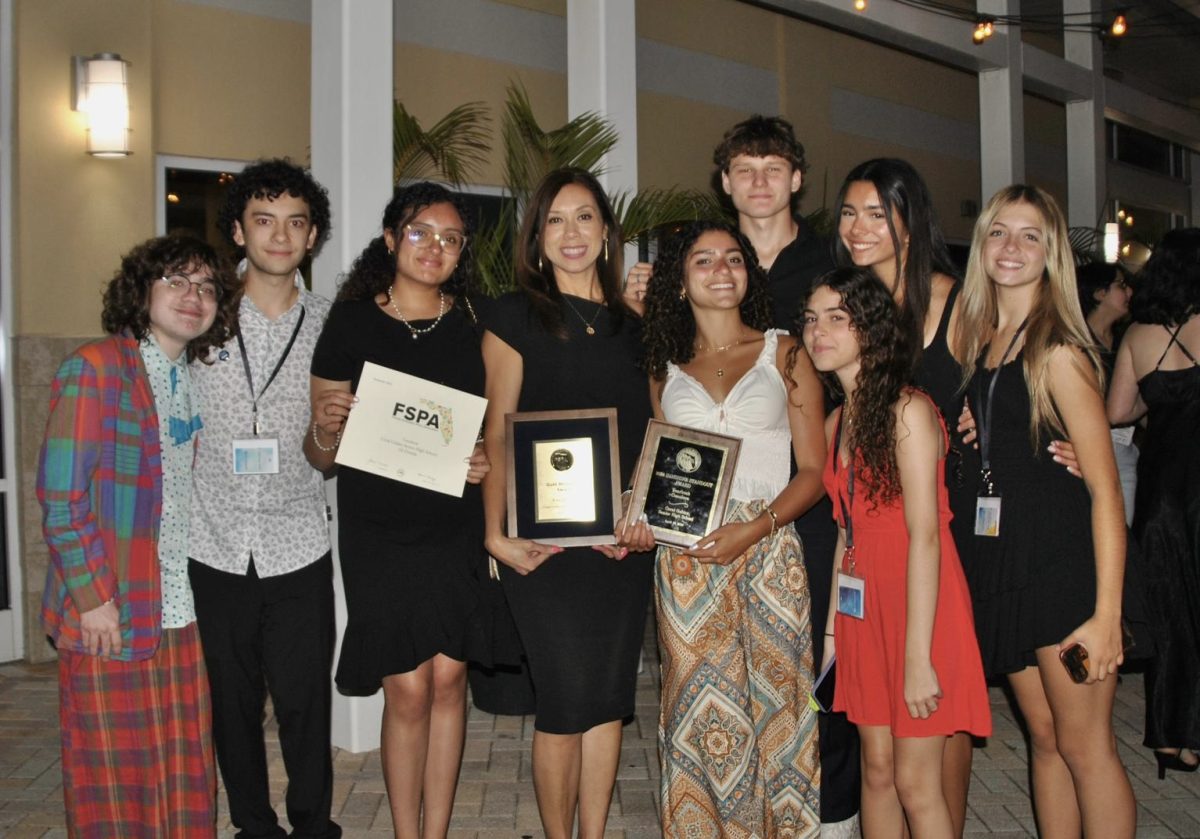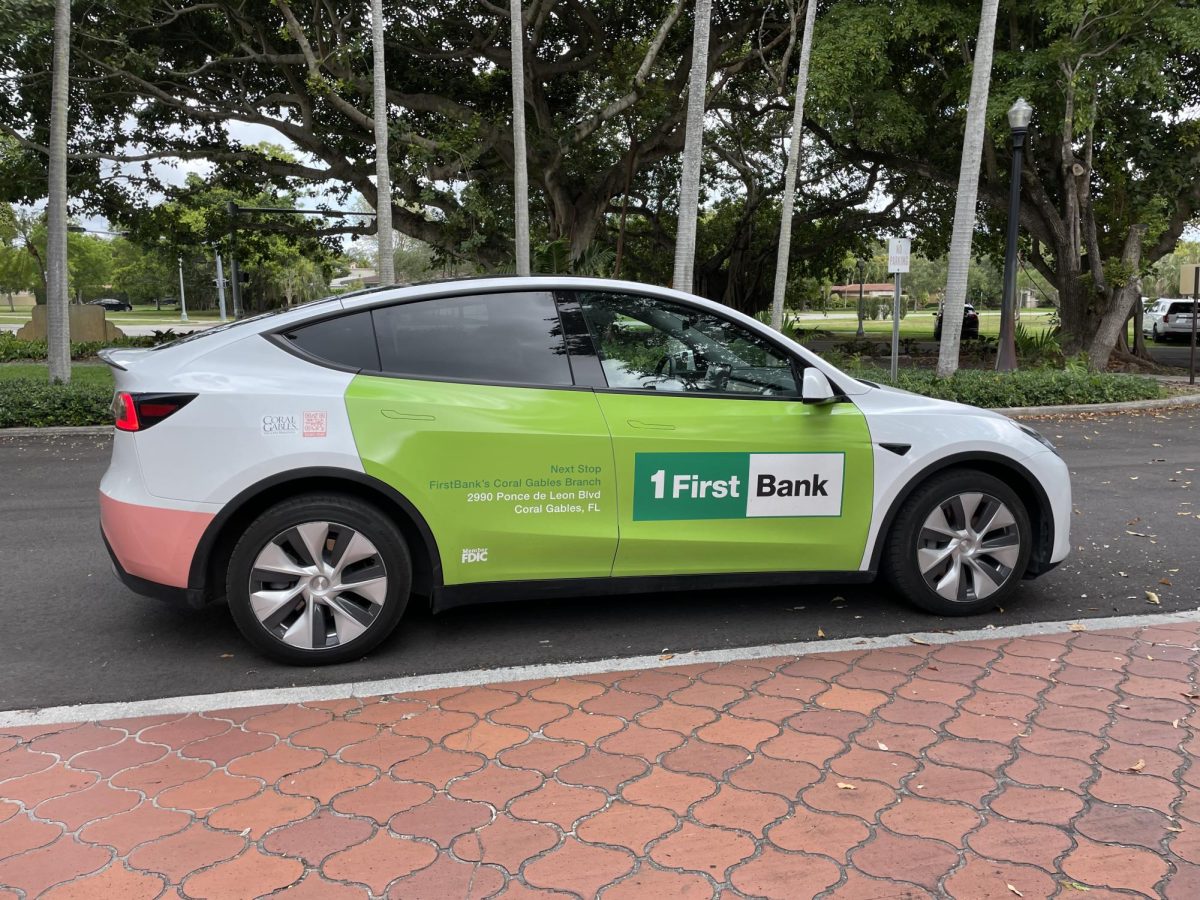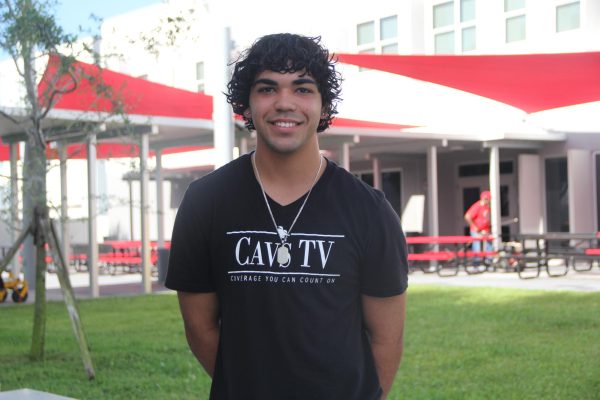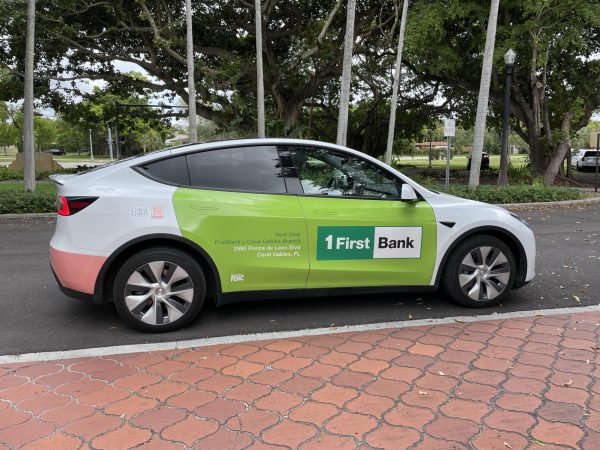Funding the Cure?
Junior Eleonor Bauwens (back left) participated in Susan G. Komen’s “Race for a Cure” last year and plans on going every year.
Oct 16, 2014
Almost everyone in America has a family member or friend who has been affected by breast cancer. Sadly, this form of cancer is the second highest cause of death, after lung disease, in American women. Due to the disease’s severity, many organizations, like the Susan G. Komen foundation, have been created and funded to raise money to donate to researchers that are improving our knowledge about the disease and striving to discover a cure. What makes this particular “nonprofit” organization different from others is the fact that Susan G. Komen spends more on other unnecessary expenses than on actually finding a cure.
A large part of the foundation’s income serves the purpose of paying executives’ insanely high salaries. One of those executives is Nancy Brinker, the founder and former chief executive officer (CEO) of the foundation. In 2012, when she was still a CEO, Brinker received a 64% raise that resulted in a salary of $640,000. She has since stepped down from the position due to the decrease in donations after her salary was released to the public.
The Susan G. Komen foundation does raise money through donations and global events like “Race for the Cure,” a marathon in which thousands of people attend to raise both money and awareness. Although the foundation donates only 20% of that money to research (discovering improved methods of early detection, accuracy of diagnosis, enabling personalized treatment based on an individual’s type of breast cancer, etc.) they also invest in public awareness: about 39% of money raised goes to “public health education,” which involves teaching people the effects of the disease and reminding them to get regular breast cancer screenings.
“I like this foundation because it raises awareness on breast cancer … and it helps people talk about it so women are not scared to go get a mammogram,” junior Eleonor Bauwens said.
Despite not donating enough to actual research for finding a cure, the Susan G. Komen foundation decided to copyright the phrase “for a cure.” Since they did this, they began suing other charities that use the words “for a cure” in their name. Regardless of whether the other charity is researching the cure to breast cancer or any other form of cancer, Susan G. Komen spends money suing them.
“They came after us ferociously with a big law firm. They said they own ‘cure’ in a name and we had to stop using it, even though we were raising money for an entirely different cause,” Roxanne Donovan, whose sister runs Kites for a Cure, an organization that raises money for lung cancer research, said. To continue reading about Donovan’s story, click here.
It is surprising that a foundation like Susan G. Komen, which was made primarily to fund research for the cure for breast cancer, actually spends most of its money on executive paychecks and suing others to obtain a higher position as a cancer foundation. The organization should reconsider how it distributes the money that is donated to it and should definitely invest more into research. Perhaps in the future, another organization dedicated to the same cause will achieve what Susan G. Komen cannot. That is, if they don’t get sued first.
























